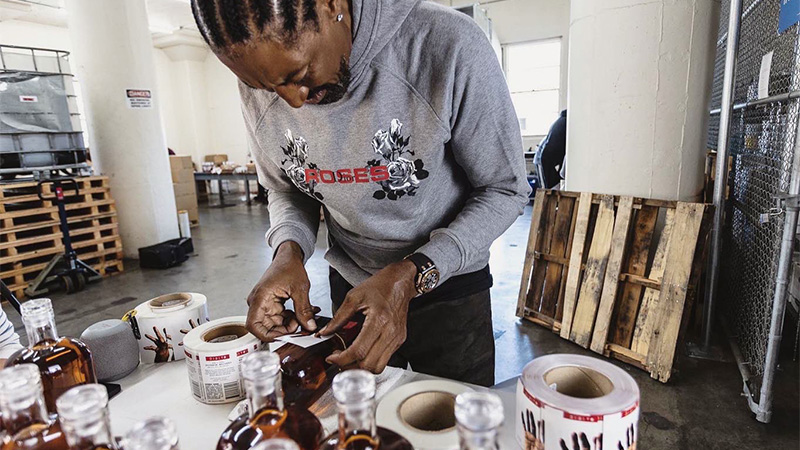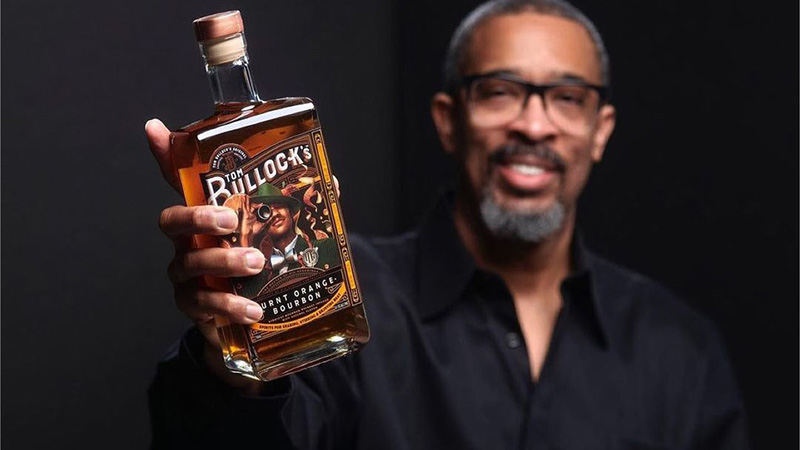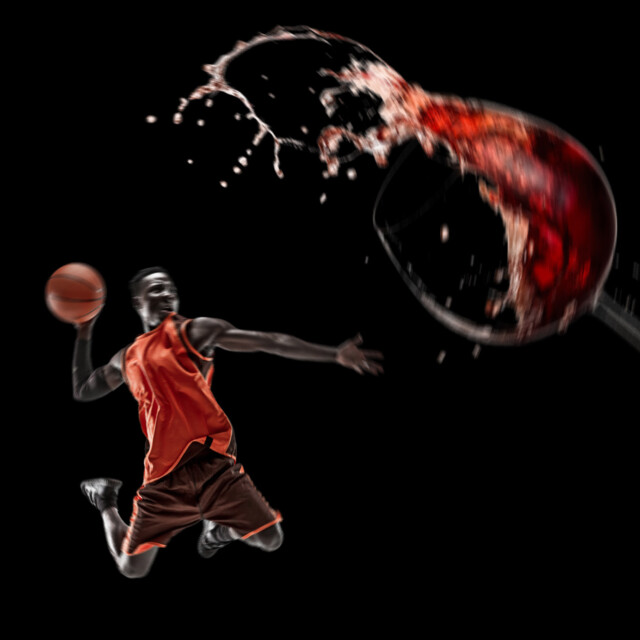There’s hardly anything novel about a celebrity-backed booze brand these days. From A-listers to influencers, famous names of all shapes and sizes have thrown themselves at whatever liquid is trending, from pink wine to locally sourced gin. But why have so many pro athletes taken the plunge, and relatively successfully for that matter?
They’re a competitive and battle-tested lot, this we know, and that certainly helps when playing the alcohol brand game. Pro athletes also tend to be very hands-on, convinced they can be among the best at making wine just as they are in the arena or on the court. They often become as passionate for making and selling their spirits as they are for sport, counting on a drive that many of the rest of us simply don’t have (or, at least not at that level).

Scottie Pippen is a household name when it comes to pro basketball, winning a half-dozen titles alongside Michael Jordan while with the Chicago Bulls. Arguably the best tandem in basketball history, the two players constantly challenged and fueled each other. Pippen could have been the guy at just about any other franchise but opted for a complementary role in Chicago. That kind of big-picture thinking led to a lot of trophies and guides his post-basketball journey as well.
After retiring from hoops, Pippen launched Digits, a bourbon label in collaboration with Dave Phinney, who started Orin Swift Cellars and most recently dove into spirits with Savage & Cooke. The latest Digits installment is a predominately corn-based bourbon aged five years at the distillery in California. After just a few months on the market, Pippen and Phinney are already ramping production to keep up with high demand.
“Our competitive nature drives us to win at all costs, and that’s advantageous in a saturated market like liquor,” Pippen says. “You can’t give up or put minimal effort into this industry. While a well-known name can certainly help you introduce your product to a market, it does not guarantee sales or growth, so focusing on creating lasting impact and relationships in every market is key and requires a lot of drive and dedication.”
“Teamwork makes the dream work” is perhaps the ultimate sports adage, but some clichés stand the test of time for good reason. It’s something Pippen practices on and off the court. “Playing basketball and building Digits are the exact same,” he says. “Every team member fulfills a different key role and together, that’s what creates success — going it alone is not possible.”
Standout New Orleans Pelicans guard CJ McCollum has embraced the wine scene while playing for the Portland Trail Blazers, a franchise with headquarters just a short drive from Willamette Valley wine country. He recently started his McCollum Heritage ’91 wine label and appears to be all-in — collaborating with esteemed Adelsheim Vineyard winemaker Gina Hennon and purchasing some 300 acres of his own vineyard land. The label just released its first sparkling wine, on top of a portfolio that includes some decidedly tasty Chardonnay, rosé, and Pinot Noir.

“You have to be patient, but you also have to do your diligence and do your work,” McCollum says of starting his label. “The same goes for sports: You don’t get success right away, you put a lot of work in the front end, and a lot of the rewards don’t come until later on in the season.”
That could not be more applicable to winemaking, a patient industry that offers just a single shot at success every year. McCollum has been slowly expanding his label, keeping a finger on the pulse of the Valley to see what other producers are up to. In the NBA, he’s become known as a wine guy and shared some of his work with other athletes during the infamous bubble season in Florida in 2020. He made sure to keep his room extra chilly to properly store his bottles.
There’s tremendous subjectivity in wine, of course, but that’s something McCollum’s athletic ability actually aligns with. No two palates, they say, are alike. “We know what generally tastes good, but what we each like is different,” McCollum says. “And basketball is the same: You may not like a player’s game, but it doesn’t mean they aren’t effective.”
McCollum released his first wine in the summer of 2020, and it sold out in hours. It was a 2018 Pinot Noir of limited production at just 133 cases. That initial bottling has evolved into a lineup of five wines. Having 625,000 Twitter followers doesn’t hurt, but that doesn’t always translate to cases out the door. “I think real, genuine marketing comes from the customers,” McCollum says. “It’s people saying, ‘I’ve had the wine, it’s good, and I can vouch for it.’”
Alan Henderson was an exceptional baller at Bobby Knight’s Indiana University before playing for several teams in the NBA. In 2013 he started Henderson Spirits Group, which features a lineup of whiskeys and gin. It’s a project with a simple and important mission: to diversify the bar industry. He recalls some hesitation from friends and fellow entrepreneurs early on about showcasing images of Black folks like himself on his labels. “My response was that my home bar has plenty of brands on it that have stories and faces of people that don’t look like me on them,” he recalls.
What gives him an edge, in addition to offering an audible voice to a historically marginalized community? Henderson says pro athletes, active and retired, have a set of intangibles that come in handy when brand building.“You aren’t scared of challenges — you actually look forward to them,” he says. “You know how to keep your confidence, even in the face of boos and losses.”

Henderson decided in seventh grade that he would go on to play pro hoops, and that’s when that certain batch of self-determination — one pro athletes know well — set in. “When you have that long-term goal in mind, it’s easier to deal with the aches and pains, personal sacrifices, losses, and obstacles that are bound to come,” he says. “When I’m having issues getting enough glass, or I have a bottler unexpectedly tell me they can’t bottle for me anymore, or any of the other issues we’ve already overcome, it hurts temporarily, but I look at it as just part of the journey to becoming a great company.”
A successful season doesn’t mean one without losses, but it does require focus and dedication from start to finish. The best vintners and distillers could say much the same for remaining competitive in their trade.
